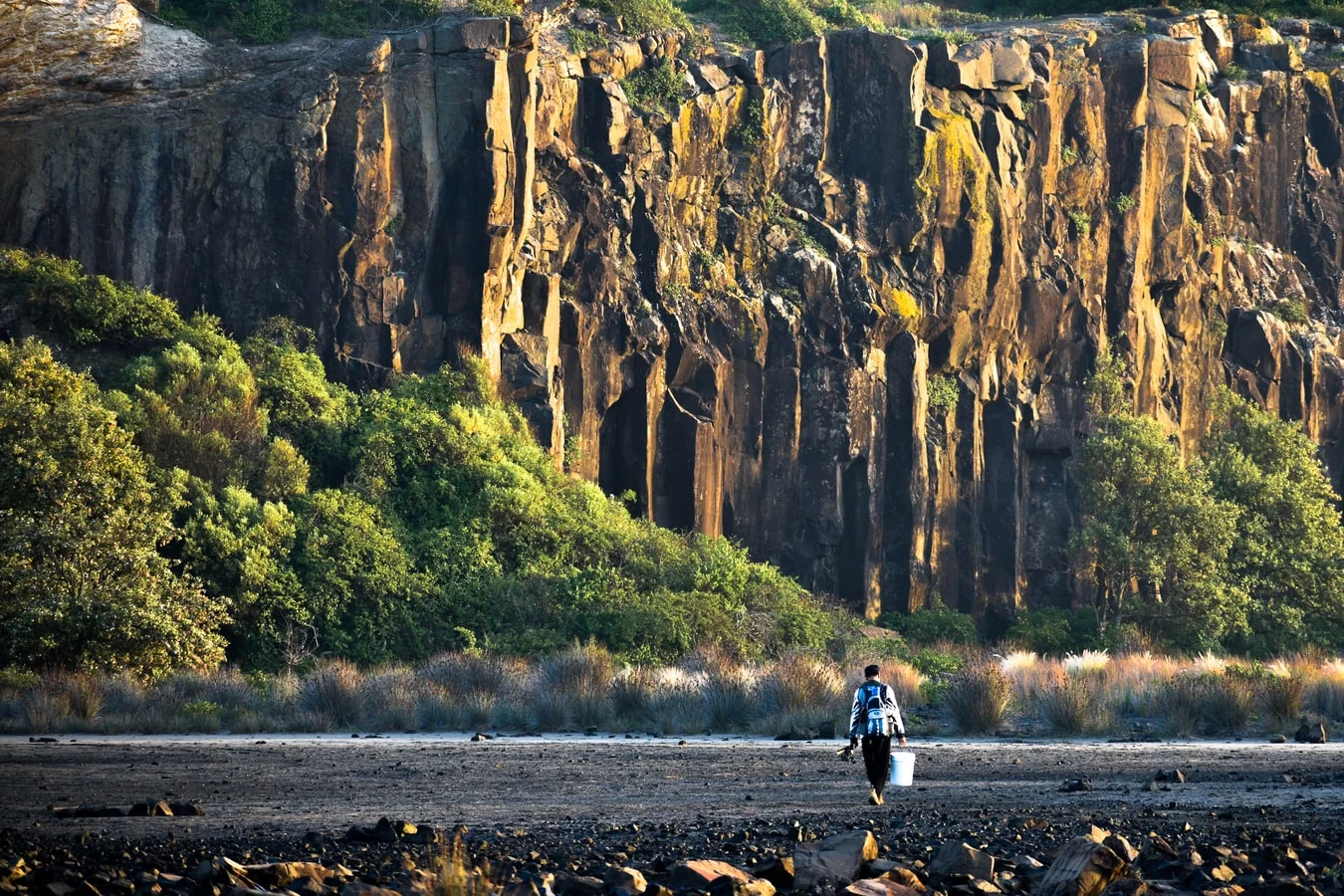AuScope Data Update Q2 2024
Pondering a big quarter of data highlights while catching a tram. Image: AuScope
Welcome to the second edition of our Quarterly Data Update. In this recurring newsletter piece, we reflect on recent progress and glimpse what lies ahead for our data-driven endeavours. This edition celebrates the launch of the AuScope Data Repository, AusGeochem’s CoreTrustSeal certification, and the new National Digital Research Infrastructure strategy.
Overview
A big congratulations to our AGN AusGeochem team for their CoreTrustSeal certification!
In an AuScope first, the team led by Bryant Ware navigated a peer-reviewed process where AusGeochem – its technology, governance, operations, and sustainability – was assessed across 16 Core Trustworthy Data Repository requirements. The process required the team to collectively consider and determine many fundamental components of research data systems, including continuity of service, legal and ethical standards, sustainable governance structures, provenance and preservation, quality and reuse, and technical infrastructure.
AusGeochem is in excellent company with over 160 CoreTrustSeal certified data repositories and a verification process required every three years; this community of data repositories actively maintain their technical relevance, sustainability and trustworthiness.
“The achievement of CoreTrustSeal certification is a major milestone for the AusGeochem platform and a fitting recognition for the efforts of a new generation of data geoscientists from across Australia who have brought this outstanding research resource into being.
Their ongoing efforts and the support of AuScope will ensure this important research platform is maintained and expanded into the future.” - Prof Andy Gleadow
We’d like to give a high-five to another AGN research data superstar, Angus Nixon from the University of Adelaide, on the publication of the AGN vocabularies in Research Vocabularies Australia in ARDC’s Research Vocabularies Australia.
Research Vocabularies are a fundamental requirement for research data to achieve interoperability, the “I” in our FAIR data principles. AGN’s Geochemistry and Earth Science Vocabularies currently support geological sample descriptions and geochemical techniques, including U/Pd geochronology, Ar/Ar thermochronology, fission track thermochronology, and inorganic geochemistry of major, minor and trace elements.
If your research is related to any of these techniques or domains, please follow the links!
AuScope Data Repository
AuScope Data Repository is live. Image: AuScope
The AuScope Data Repository is dedicated to the preservation and continuous accessibility of geoscientific data generated by Australia's geoscience community and used to address fundamental geoscience inquiries and overarching challenges such as climate change, natural resource security, and natural hazards. Launched at our recent data-focused All Hands meeting, we would like to send a big THANK YOU to the CSIRO-based project team led by Anusuriya Devaraju!
Our repository has been designed to ensure geoscience datasets can be stored with appropriate metadata, such as geolocation, which is often not available in generalist repositories.
If you have or know of datasets needing TLC and FAIR-ification you can proceed directly to the AuScope Data Repository or contact Rebecca directly.
All of these activities are of strategic importance to AuScope and strengthen our claim that AuScopes Research Data Systems are:
Designed, developed, managed, maintained and used to ensure data, data products and software are aligned with the FAIR and CARE principles.
Operated and governed by international best practices and agreed discipline standards.
Recognised by relevant external parties through leadership, development and collaborative problem-solving.
National Digital Research Infrastructure Strategy
The National Digital Research Infrastructure (NDRI) Strategy has been released! Drawn from many consultations, roundtables, drafts and discussions, the strategy represents the National Research Infrastructure Advisory Group's (NRIAG’s) advice to the Federal Government on what to consider when investing in cutting-edge NDRI. Image: AuScope
The National Digital Research Infrastructure strategy was launched last month and provides a focal point for the national research community.
By 2030, Australia’s NDRI system should be
Underpinned by training frameworks for researchers and the NRI workforce.
Responsive to technological and societal shifts.
Consistent in its standards for data collection, curation, and access.
Integrated across levels of computing and data infrastructure.
Cybersecure, particularly for national-scale data and computing.
Maximised by openly available research software tools.
With relevant research activity and researcher needs across the AuScope community, we were pleased to see the clear identification of each of these fundamental NDRI outcomes. Of particular note is the inclusion of our Geophysics 2030 project as a case study for providing ‘consistent in its standards for data collection, curation, and access’ (see outcome 3), highlighting both the challenge and value of creating these geophysical high-performance datasets.
This is the first of several NCRIS-wide NDRI activities expected to be announced in the coming months. We will be sure to keep you informed and hold discussions as and when needed. Stay tuned!
CARE Principles for Indigenous Data Governance
As discussed at our most recent All Hands meeting, the CARE Principles for Indigenous Data Governance are an increasingly important component of Research Data Systems and I would encourage you all to continue building knowledge in this area. We will increasingly need to build Indigenous Data Governance into our operations, processes and policies, both here at AuScope and within our partnering institutions.
Below is the organisation and reference list for our All Hand CARE Principles for Indigenous Data Governance presentation. Please continue to learn about this vitally important aspect of geoscience research, and don’t hesitate to reach out if you have any questions or would like to contribute any resources.
United Nations Declaration on the Rights of Indigenous People
British Columbia First Nations Regional Information Governance Institute
Riley Taitingfong, Andrew Martinez, Stephanie Russo Carroll, Maui Hudson, and Jane Anderson (2023). “Indigenous Metadata Bundle Communiqué.” Collaboratory for Indigenous Data Governance, ENRICH: Equity for Indigenous Research and Innovation Coordinating Hub, and Tikanga in Technology. DOI: 10.6084/m9.figshare.24353743
Kukutai, T., & Taylor, J. (2016). Indigenous data sovereignty: Toward an agenda. ANU press. DOI: 10.22459/CAEPR38.11.2016
Carroll, S., Garba, I., Figueroa-Rodríguez, O., Holbrook, J., Lovett, R., Materechera, S., ... & Hudson, M. (2020) The CARE Principles for Indigenous Data Governance. Data Science Journal, 19. DOI: 10.5334/dsj-2020-043
Carroll, S.R., Herczog, E., Hudson, M. et al. Operationalising the CARE and FAIR Principles for Indigenous data futures. Sci Data 8, 108 (2021) DOI: 10.1038/s41597-021-00892-0
Looking Ahead
AuScope community members can access storage and compute resources through the AuScope—National Computational Facility (NCI) partnership. Resources are allocated based on alignment with AuScope strategy and are available via this application form.
In the coming weeks, we will ask for comments on the draft Research Data Systems Strategy 2025 - 2030. Please look out for the email or contact Rebecca directly if you’d like to discuss the strategy in detail.
Discover our recent data news
STORY IN A NUTSHELL
AuScope Data Quarterly highlights major events, new releases, workshops, and key activities from the past quarter.
AUTHOR
Dr Rebecca Farrington
EDITOR
Philomena Manifold (AuScope)
FURTHER READING
AuScope Data Collaborations
















